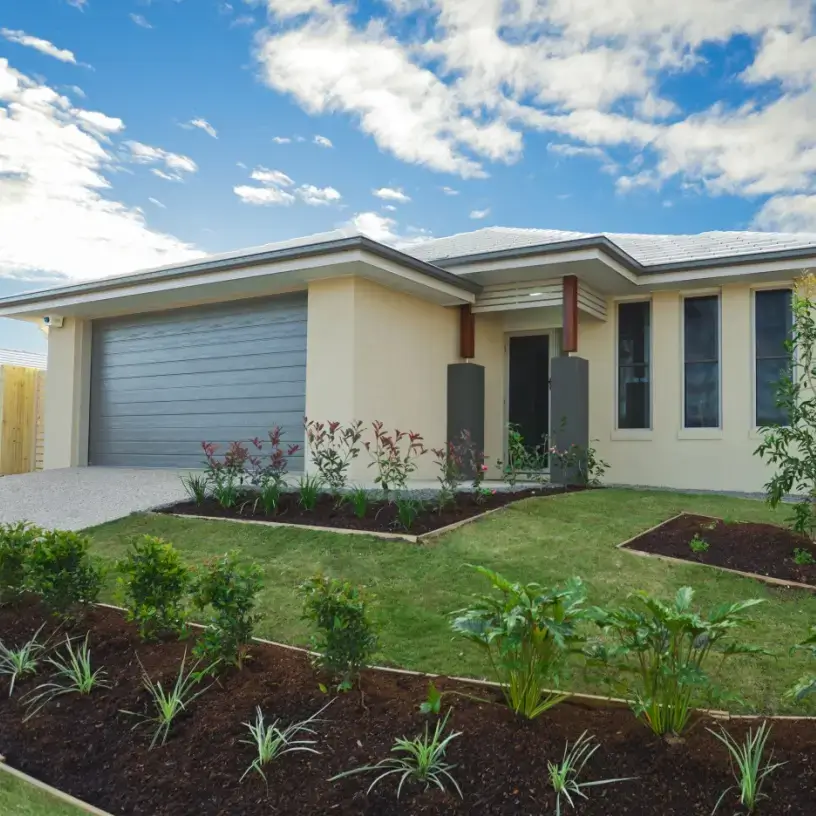Home / Compare Home And Content… / Building insurance

Key takeaways
Whether you’re an owner-occupier or a landlord, we’ll walk you through the different types of building insurance that can protect your home. Here are some key points you should know:
- Home insurance, strata insurance and landlord insurance are the main types of building insurance available in Australia.
- Your address, property value and proximity to disaster-prone areas are just a few factors that affect your building insurance premiums.
- Optional cover you can purchase with building insurance may include accidental damage cover, motor burnout insurance, flood cover and rent default.
Kochie’s top tips for protecting your most important asset
Find out what you need to know about the different types of building insurance and how they could cover your home.



Your property is your most important asset so when things go wrong it can be stressful and expensive! All it takes is a fallen tree or a burst pipe and you could be left hundreds or even thousands of dollars out of pocket. That’s where building insurance can come in. It can cover aspects like your roof, walls, garages for damage from things like storms and fire.
There are three kinds of cover – Home insurance is ideal to cover the home that you own and live in. You might also need contents insurance for your belongings. Landlord’s insurance is for your investment property and can offer cover for the building and potentially also its contents. Finally, there’s strata insurance, which covers apartment buildings, townhouses, and even some commercial properties that are under a body corporate or strata type management structure.
If you’re shopping around for policies, Compare the Market has these tips: Check and make sure you’re not underinsured. Different policies have different inclusions and exclusions. It’s important to read the fine print. If you’re looking to save, try adjusting your excess.
A higher excess means you’ll pay more to claim but could save on your premium.
And – most importantly – compare your options!
It’s the best way to make sure you’re getting good value for your money. Start your journey today with Compare the Market.
Tips for navigating building insurance from our home insurance expert
Compare the Market’s home insurance expert, Adrian Taylor, has some building insurance tips for you to consider.

Include the replacement cost of all outbuildings
Your house isn’t the only thing your building insurance covers. When setting the sum insured of your policy, consider how much it would cost to repair or replace all outbuildings on your property, including sheds, garages and other structures, to ensure you’re fully covered.
Tell your insurer when you’re renovating
Your insurer might require you to notify them when you’re renovating as it could be a condition of your cover. If you fail to do so, any damage to your building caused during renovations might be denied or only partially covered.
Read the PDS before you purchase cover
There are limits, exclusions and conditions of cover that will apply to every policy. Always read the Product Disclosure Statement (PDS) for a full list of inclusions and make sure that these meet your needs before you purchase cover.
The basics
What is building insurance?
 ‘Building insurance’ refers to insurance cover for the physical structure of your home and other buildings on your property. It can take the form of many types of policies like home insurance, landlord insurance and strata insurance. Each type of building insurance is intended to insure the buildings on a property against a variety of scenarios and events (known as insured events).
‘Building insurance’ refers to insurance cover for the physical structure of your home and other buildings on your property. It can take the form of many types of policies like home insurance, landlord insurance and strata insurance. Each type of building insurance is intended to insure the buildings on a property against a variety of scenarios and events (known as insured events).
- Home insurance (also known as home building insurance) is cover for your home but not its contents. It can cover the bricks and mortar of your house, as well as driveways and fixed outbuildings like garages, carports, in-ground pools and fencing.
- Strata insurance covers shared property in domestic buildings (e.g. apartments and townhouses) and commercial buildings (like offices). This means that damage sustained to communal areas such as driveways and stairwells may be covered in most circumstances.
- Landlord insurance includes all the benefits of home insurance policies, but for your rented-out investment property. It may include cover for floods, storms, fire and theft, as well as cover specifically applicable to a tenanted property, such as loss of rent.
What does building insurance cover?
In all its forms, building insurance provides financial protection against loss and damage from insured events up to a specified limit. However, there are some exclusions across the different types of building insurance products, depending on your level of cover.
The table below can give you an idea of the typical benefits of the different types of building insurance.
| Insured event/damage | Home building insurance | Landlords insurance | Strata insurance |
|---|---|---|---|
| Fire damage | ✔ | ✔ | ✔ |
| Flood damage | ✔/Optional | ✔/Optional | ✔/Optional |
| Malicious damage | ✔ | ✔ | ✔ |
| Vandalism and damage from theft | ✔ | ✔ | ✔ |
| Damage from burst pipes and escape of liquid | ✔ | ✔ | ✔ |
| Damaged caused by removalists or renovations | ✖ | ✖ | ✖ |
| Legal liability cover if someone is injured in your home | ✔ | ✔ | ✖ |
| Removal of debris | ✔ | ✔ | ✔ |
| Temporary accommodation costs | ✔ | ✖ | ✔ |
These benefits can vary between insurers and are subject to the policy’s terms and conditions. For full details, make sure you check the PDS and Target Market Determination (TMD) before purchasing any new policy or making an insurance claim.
Why should I get building insurance?
The most important reason to have building insurance is to ensure you can financially recover from damage caused to your home by a variety of events, such as bushfires, fire, storms and flood.
Do I need building insurance for a strata unit?
If you live within a strata complex (such as a townhouse or studio apartment), check with your body corporate to see if your building is already covered under their strata policy.
If you own the strata property, consider protecting it with building insurance. Being insured can give you peace of mind knowing that you have cover for a range of natural disasters and damage from other events, including break-ins.
Premiums and coverage
How much does building insurance cost?
The price of building insurance is unique to each home and property and is determined by several factors, including:
- The property’s value
- Any security measures you have in place
- Construction materials
- Your proximity to disaster-prone areas
- The insured address (for risk factors like suburb crime rates)
What does sum insured mean?
The sum insured is the replacement value of your insured property should it be completely damaged or destroyed. This should be the estimated amount it would cost to rebuild your home to its former condition, not the market value of your home.
It’s vital to ensure that this amount covers the full rebuilding costs of your home as well as other buildings on your property. Otherwise, you may need to pay the extra cost out of your own pocket, a situation known as underinsurance.
Additional cover
How do I insure my building’s contents?
 Contents insurance is cover for the belongings and valuables in your home. If you’re a landlord and rent out your property furnished, you may want to think about adding this cover. Home owner-occupiers and renters could benefit from contents insurance as well. There are also policies available that combine contents insurance with your building cover.
Contents insurance is cover for the belongings and valuables in your home. If you’re a landlord and rent out your property furnished, you may want to think about adding this cover. Home owner-occupiers and renters could benefit from contents insurance as well. There are also policies available that combine contents insurance with your building cover.
What optional extras can I get through building insurance?
Many insurers offer a suite of optional extras to choose from – this is cover that you can add to your standard building insurance policy for broader coverage. These options can vary between insurers, but some common optional extras can include:
- Accidental damage cover. Usually available through both home and contents insurance policies, this option can cover accidental damages and breakages that happen around the home, like holes in walls or wine spills on carpets.
- Motor burnout insurance. Should the electric motor on your fixed appliances (like an air conditioning unit) burn out, having this optional extra with your building insurance can help cover the repair or replacement costs. This option is usually also available through contents cover for your portable appliances (like fridges).
- Flood cover. Insurance for flood damage can either be automatically included in standard home insurance or available as an optional extra.
- Rent default. If you add this optional cover to your landlord insurance policy, you may be covered for your tenants defaulting on their rent.
Meet our home and contents expert, Adrian Taylor
As a General Insurance expert with over 13 years’ experience in financial services, Adrian Taylor works to make it easier for homeowners, renters and landlords to protect their home and contents. He believes it’s important for all residents (whether they rent, own or lease) to have adequate financial cover for their property and belongings in case the worse should happen.


